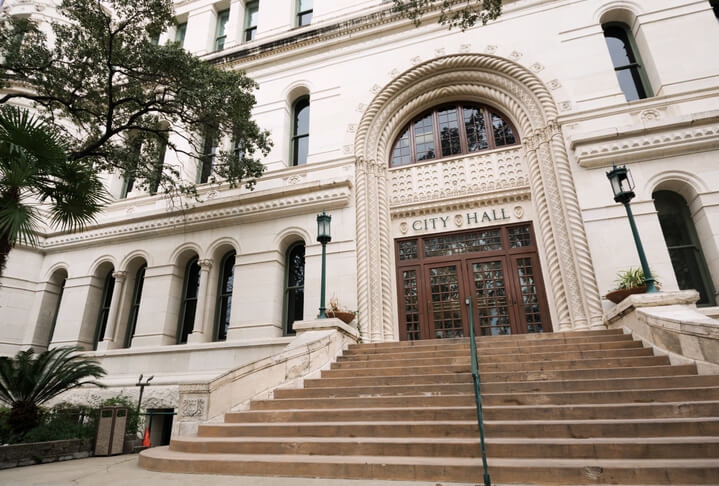
Across the United States, state and local governments have issued “stay-at-home” and “shelter in place” orders in response to the COVID-19 crisis.
These orders have severely limited, or in some cases closed altogether, businesses of all kinds. Certain businesses deemed “essential” have continued to operate, albeit under far from normal conditions.
But others have been shut down entirely, losing revenue every day they are not permitted to operate. Regardless of where a business falls on the “essential” spectrum, business owners undoubtedly have questions about how the government’s actions could trigger business interruption coverage.
This is where civil authority coverage may come into play. This specific coverage could be the answer for businesses whose policies contain the provision, especially those operating in high traffic urban areas with stay-at-home orders in place.
Business interruption insurance policies have been discussed at length during the pandemic, including various exclusions and endorsements that affect coverage; this post addresses civil authority coverage.
What is Civil Authority Coverage?
Civil authority coverage applies when a civil authority – such as local, state, or federal government – decides to evacuate or prohibit access to certain areas or businesses following a natural disaster. As we’ve seen, when this occurs, the financial implications for businesses operating in affected areas can be devastating.
Many businesses have been forced to partially or completely shut down their operations. These ongoing mandated closures can cause a business to suffer extended income loss or to incur significant extra expenses.
Civil authority clauses are standard in business property insurance policies, as they outline the situations in which business interruption insurance is extended when the interruption is caused by an applicable government entity.
The clause indicates whether the insurer will pay for business income losses in the event that a civil authority prevents the policyholder from accessing the premises covered by the policy.
Although every policy is different, there are several key requirements found in most standard civil authority clauses.
“Order of Civil Authority”
The first, most fundamental requirement of civil authority coverage is that there be an “order of civil authority” that causes a business to shut down. This is just a different name for a governmental order.
One common example is when a government issues an evacuation order in connection with a hurricane or other natural disaster, thereby closing all businesses in the affected area. In the COVID-19 context, the order of civil authority would be a government’s “stay-at-home,” “shelter in place,” or other similar orders that cause a full or partial closure of a business.
Order must be “a result of physical loss or damage . . . other than at a covered location.”
Another common requirement of a civil authority provision is that the order of civil authority must be “a result of physical loss or damage to property other than at a covered location.” There are three key points here to understand.
Physical Loss or Damage
First, there must be “physical loss or damage.” This means that the civil authority order itself, even though it effects the shutdown of the business, will not trigger coverage without physical damage shown.
This is an important point in the COVID-19 context because, unlike a hurricane or other natural disaster where physical damage is obvious, it is not as clear how policyholders will demonstrate where the virus caused “physical loss or damage.”
Whether or not the presence of a virus is “physical loss or damage” has become a multi-billion dollar question, and policyholders will find key guidance in a handful of case decisions from around the country that have found that the presence of the E. Coli bacteria, ammonia, and similar analogous substances do, in fact, represent physical loss or damage.
Many of the various government orders from around the country will also provide support, in that they reference the “ability” or “propensity” of the virus to attach to surfaces and result in physical loss or damage.
Location of Physical Loss or Damage
Second, the physical loss or damage must occur to a property “other than at a covered location.” This means the damage need not occur at the covered business but at some other location.
Some policies require that this location be nearby (such as within a one-mile radius); others have no geographical restriction. Depending on the policy language, this may actually favor the policyholder in showing coverage, because the physical loss or damage need not occur at the business itself.
Order Must Occur as a Result of Physical Loss or Damage
Last, the civil authority order must be a result of the physical loss or damage. Courts have consistently interpreted this to mean, at minimum, physical loss or damage be one of the causes of the civil authority order.
This reinforces the requirement that the civil authority order have some relation to the physical damage. In other words, the sequence is critical: the damage must come first, with the government order following as a result of that damage.
If the sequence is the other way around – with the government order coming first in order to prevent future physical damage – the insurance industry will argue that the terms of the typical civil authority policy provision have not been met.
Stay At Home Orders and Civil Authority Coverage
When it comes to COVID-19, federal and local governments have put many different shelter-in-place and stay-at-home orders into effect. These directives have resulted in the closure of many local businesses, including restaurants, bars, gyms, movie theaters, and many others.
Coverage Differs Based on Insurer
Though many insurance policies offer business interruption coverage as part of civil authority coverage, not all policies are created equal. While it’s easy to assume civil authority coverage can be applied to all businesses directly affected by COVID-19, it’s important to remember insurance policies differ significantly from company to company.
The specific terms and conditions within each policy will ultimately determine if coverage is available. Even if a local government prohibits access to the insured’s premises, the policy could still require a specific connection to a direct physical loss in order to qualify for coverage.
Common Reasons Insurers Use to Deny Civil Authority Coverage
Although insurers’ coverage positions are evolving continually, there are indications that they may be reluctant to find coverage.
For one, they might argue that there was no “direct physical damage” to a property that led to the civil authority order.
They might also contend that COVID-19 civil authority orders do not completely restrict access to buildings – such as with restaurants restricted from having patrons dine-in.
But depending on the policy language, civil authority coverage can still be triggered when authorities “restrict” or “impair” the policyholder’s access to its insured property.
Given the great uncertainty surrounding coverage, the assistance of a business interruption claims attorney can greatly help a policyholder.
Large Urban Areas And Civil Authority Coverage
Policyholders in larger urban areas may have more traction in establishing coverage under civil authority provisions.
Civil authority provisions will essentially require that the presence of the virus at nearby locations, often as close as one mile, prompted government officials to implement restrictive orders that directly restricted or prevented access to the policyholder’s location.
In the larger cities, these geographic and sequential requirements will be more readily met than in more sparsely populated areas.
Texas COVID-19 Business Interruption Claims Attorneys
In uncertain times like these, businesses are struggling to get the coverage they need to stay afloat, even when insurance policy requirements have been met.
At Raizner Law, we have obtained a reputation for delivering successful results for our insurance coverage clients. Our experienced attorneys have successfully handled large, complex insurance disputes against nearly every major insurance company.
Contact us today to see how we can assist you with your COVID-19 business insurance claims.


